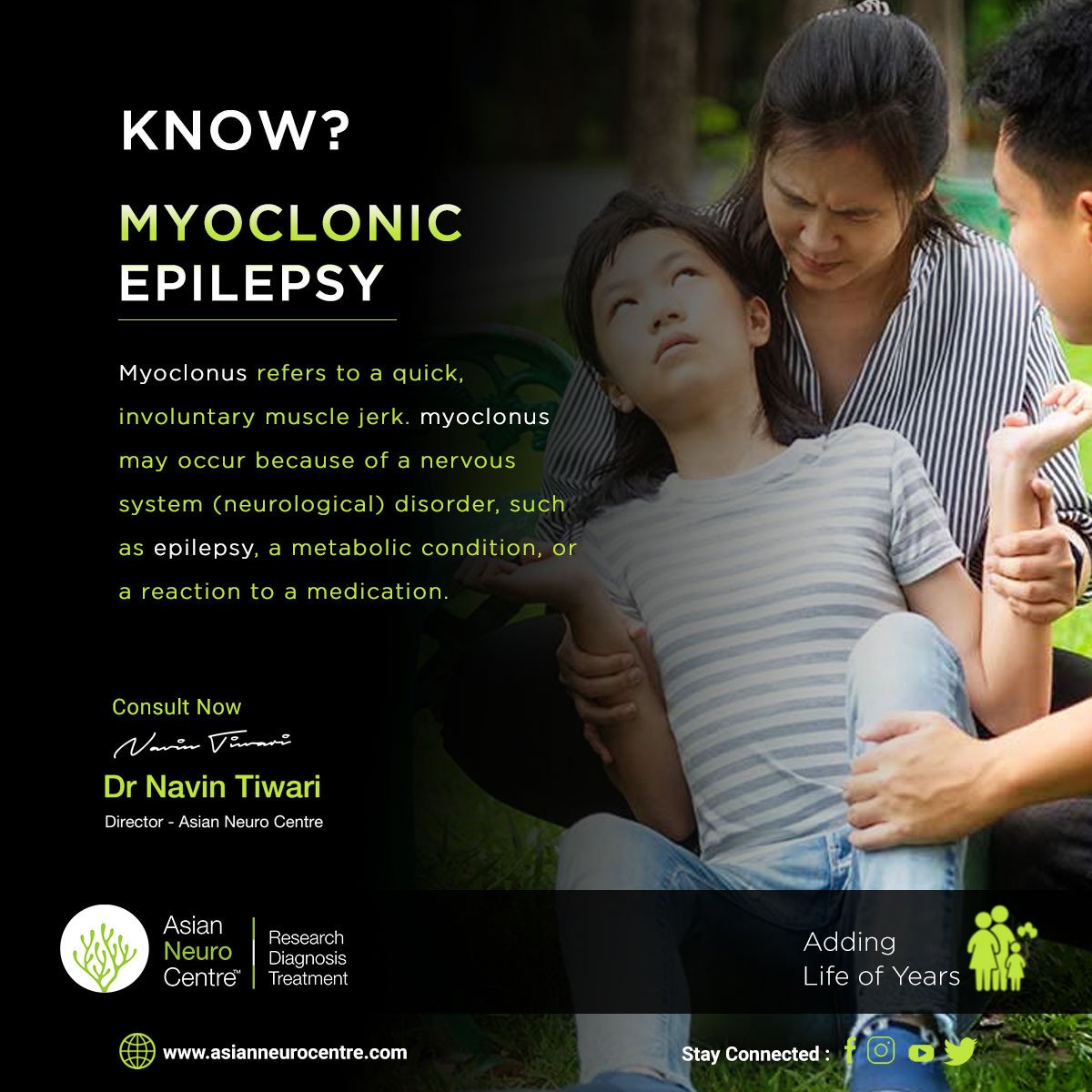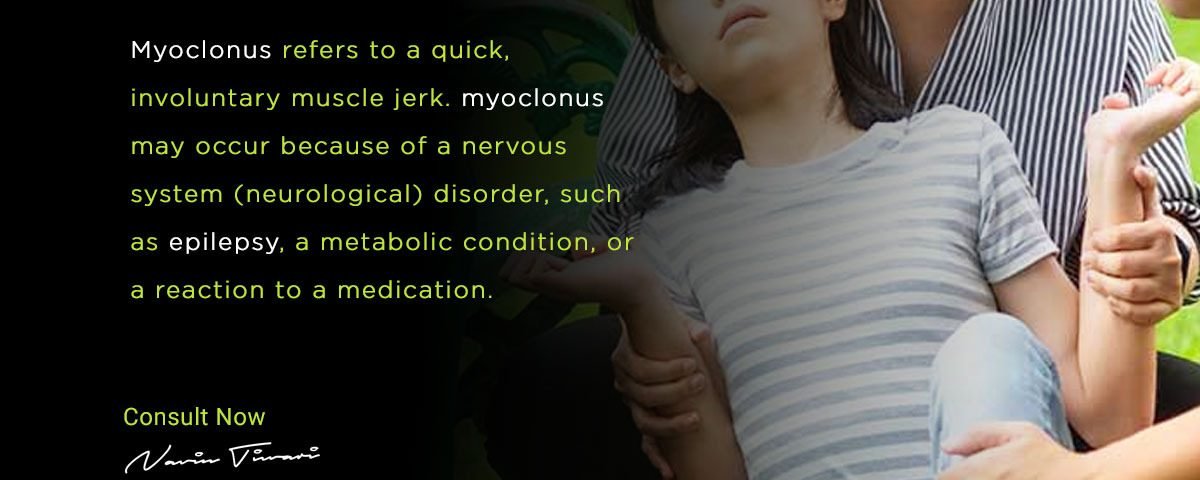- Have any questions?
- 911 12345 29
- info@asianneurocentre.com
Myoclonic Epilepsy Causes, Symptoms, Treatment, Dr.Navin Tiwari

Trigeminal Neuralgia Conditions, Causes, Symptoms and Treatments
November 20, 2020
Wish you Merry Christmas!
December 25, 2020Myoclonic Epilepsy
Myoclonic seizures are brief shock-like jerks of a muscle or group of muscles. They occur in a variety of epilepsy syndromes that have different characteristics. Epilepsy can experience myoclonus in hiccups or in a sudden jerk that may wake you up as you’re just falling asleep. Myoclonus refers to a quick, involuntary muscle jerk. Myoclonus may occur because of a nervous system (neurological) disorder, such as epilepsy, a metabolic condition, or a reaction to a medication. Myoclonic epilepsy are caused by abnormal electrical activity in the brain, which triggers the myoclonic muscle movements.
Causes of Myoclonic Seizures
Myoclonic seizures are associated with several different syndromes:
Juvenile Myoclonic Epilepsy generally begins in puberty or in early adulthood. These seizures often happen upon waking up.
Lennox-Gastaut Syndrome is an uncommon condition that causes myoclonic seizures as well as other types of seizures. This occurs in early childhood, and the myoclonic seizures involve the face as well as the neck, shoulders, and upper arms.
Progressive Myoclonic Epilepsy is a condition that is characterized by a combination of myoclonic seizures as well as tonic-clonic seizures.
- Infection
- Stroke
- Trauma to the spinal cord or head
- Tumors on the brain or spinal cord
- Kidney failure
- Liver failure
- Lipid storage disease
- Adverse effects of drugs or chemicals
- Hypoxia (a condition in which the body, including the brain, is deprived of oxygen)
- Autoimmune inflammatory conditions, such as multiple sclerosis and the malabsorption syndrome celiac disease
- Metabolic disorders
Symptoms of Myoclonic Seizures
Myoclonic seizures generally affect:
- Neck
- Shoulders
- Upper arms
Myoclonic seizures may not be noticed because they happen so quickly. Someone may think they are tics or clumsiness.
Symptoms of these seizures include:
Quick, uncontrolled muscle jerks
Jerky or rhythmic movements
Unusual clumsiness

Childhood myoclonic epilepsy conditions often progress to more severe seizures in adulthood.
Symptoms of myoclonus can range from mild to severe. Spasms may occur rarely or often. One region of the body or all muscle groups can be affected. The nature of the symptoms will depend on the underlying condition.
Signs Of Myoclonus Include Jerks Or Spasms That Are:
1. Unpredictable
2. Sudden
3. Brief In Duration
4. Uncontrollable
5. Similar To Shock-Like Jerks
6. Irregular In Intensity And Frequency
7. Localized To One Part Of The Body
8. Spread Throughout The Entire Body
9. Interfering With Normal Eating, Speech, Or Movement
Treatment of Myoclonic Seizures
Correction of the cause if possible
Drugs to lessen symptoms
The cause of myoclonus is corrected if possible. For example, drugs that can cause myoclonus are stopped. A high or low blood sugar level is corrected, and kidney failure is treated with hemodialysis.
If the cause cannot be corrected, certain ant seizure drugs (such as valproate and levetiracetam) or clonazepam (a mild sedative) may lessen symptoms.
Asian Neuro Centre is one of the largest and most experienced practices in Indore where the best & experienced neurologist is skilled in dozens of specialties, working to ensure quality care and successful recovery.
Dr Navin Tiwari
Consulting Neurologist

